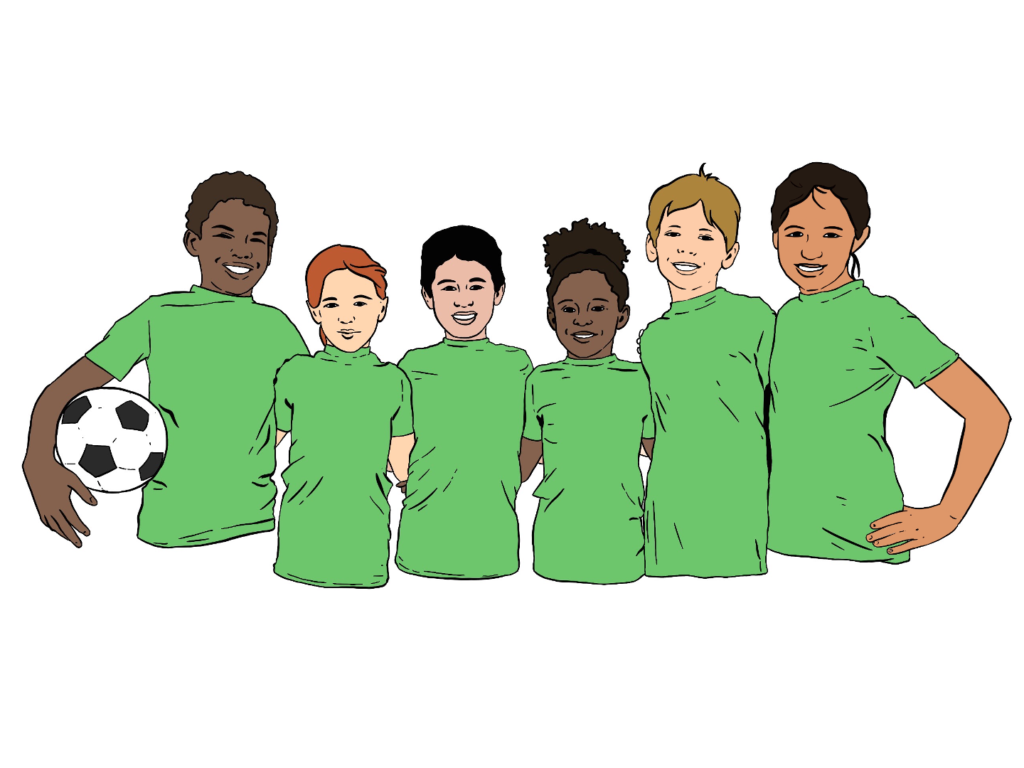
Positive self-esteem has other benefits too. Children do not just feel positive about themselves; they can also feel positive about the social groups to which they belong.
For young children, it is important to feel that they are part of a group. This helps them navigate the social world more easily. Children’s developing sense of self is influenced by their interactions with others. Children develop particularly close relationships with others in their same groups. For example, kids on a sports team may develop special friendships with others who play the same sport. Or, kids who enjoy a certain type of music themselves, may want to spend more time with others who like the same type of music. Scientists call this an “in-group preference.”
Forming social groups and close friendships is an important aspect of children’s social development. It is an essential part of feeling like they belong.
It is important for adults to feel like we belong too. Having people in our lives that we relate and connect to makes us feel like we are part of something bigger. We form connections in many ways. Sometimes we form connections with people who have similar life experiences. Other times we form connections based on shared interests and commonly held beliefs or goals. Interestingly, researchers have found that children’s self-esteem is intertwined with how well they are able to connect to others and their feelings of being part of a group.
In this way, self-esteem is related to the most basic aspects of our social development and personality very early in life. And in turn, how children understand themselves, their sense of self, is one of the things children draw on to help them form social groups and friendships.
-
- Academic sense of self
- how a person thinks of themself as a student
- Bias
- the belief that some people or ideas are better than others, usually resulting in unfair treatment
- BIPOC
- Black, Indigenous, people of color
- Conscious
- thoughts or feelings that we are aware of
- Growth mindset
- the belief that, with effort, you can learn and achieve new things.
- In-group preference
- the tendency to form close relationships with others in a person’s same groups
- Self-esteem
- a cluster of characteristics, such as feeling confident, having pride in oneself, and a sense of self-worth
- Sense of self
- how a person thinks and feels about their self
- Stereotype
- a widespread belief that a person must have a trait because they belong to a particular group
- Unconscious
- thoughts or feelings that we are unaware of